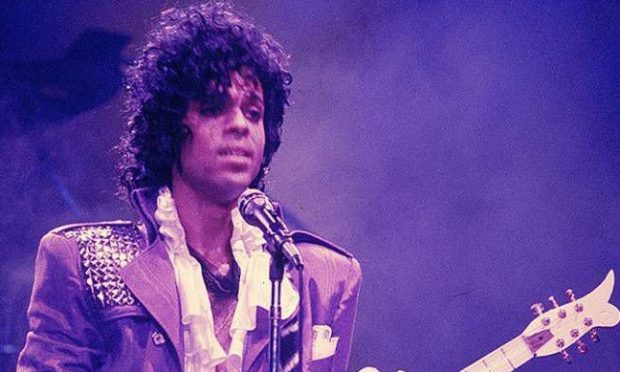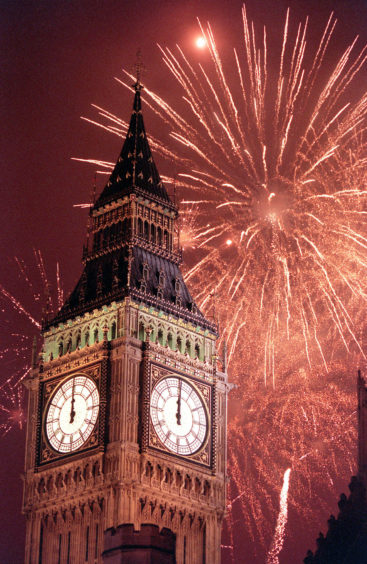Remember when we all lost our collective mind over the Millennium Bug?
For younger readers, and those who have chosen to block it out, that was when we realised that the earliest computer programmers had, as a space-saving workaround, used a two-digit code when writing years – and had not factored in what might happen when the calendar clicked over from the 1900s to the 2000s.
And so, for much of the countdown to that millennial midnight on December 31, we did not, as Prince would have had it, party like it’s 1999, but were instead panicking about planes falling from the sky, power stations blowing up and the collapse of human civilisation as we knew it. Happy days.
Of course, none of the most lurid Y2K warnings came to pass. Sure, there were glitches. Some cash points failed, a customer in a New York video rental store received a $91,250 bill – don’t make me explain video rental stores too kids – but mostly we all just shook off our once-in-a-thousand year hangovers and got on with the rest of our lives.
Our mass hysteria might look comical in hindsight, but it would be naive to think we were all getting our knickers in a twist over nothing. It’s just as likely that the reason systems didn’t crash and life went on, the same as it ever had, was because governments, organisations and individuals around the world went to extraordinary effort and trillions of pounds of expense in order to avert a catastrophe.
That’s the thing about preparing for the worst. When your measure of success is that the terrible thing didn’t happen to you, there’s always going to be a suspicion that the actions you took to prevent it were not necessary. In the real world, there’s no sliding door to show us how bad things might have become if we had not addressed the threat in the first place.
All that ancient history came to mind this week as I was pondering what to write about. It didn’t feel like there was one standout story. And then I remembered the chief medical officer had been forced to resign after ignoring the Scottish Government’s coronavirus lockdown guidance to visit her second home in Fife; and economic forecasters had predicted the pandemic would cause a recession that would dwarf the financial crisis of 2007-2008; and the Queen had given a rare address to the nation, evoking the spirit of Vera Lynn and wartime evacuees, the day before the Prime Minister was admitted to intensive care.
Meanwhile, they’re building a temporary mortuary 10 miles away at Inveralmond. Our local intensive care unit at Perth Royal Infirmary is down to a single bed as most of the staff and equipment is transferred to the Covid-19 emergency treatment centre at Ninewells. Dundee University’s medical students are foregoing their graduation ceremonies to get straight to work on the frontline and St Andrews University principal Sally Mapstone is warning the 600 year-old institution is facing its most serious crisis in modern times as coronavirus restrictions blast a £25 million black hole in its finances.
It’s an odd kind of complacency that sets in when the news is all so overwhelming, especially when, for most of us, Covid-19 still feels like a distant threat that is wreaking disruption to our day-to-day lives and not the devastation we have all been bracing for. Foreign Secretary Dominic Raab announced on Thursday that the lockdown period was being extended. On Friday the UK-wide death toll rose by 1,000 – a thousand – but here in Tayside and Fife we have not yet seen a repeat of the grimmest images that have emerged from countries like Italy and the US as their societies buckled under the pressure of the pandemic. Let’s hope we never do.
For as long as Covid-19 feels like a tidal wave that has not hit us personally it’s human nature to hope that maybe it’s going to miss us after all; that life can safely return to normal; that we’re feeling fine; that while the confirmed cases mount no one in our family, or neighbourhood is sick; that we don’t know anyone who has been diagnosed with the illness, never mind died from it; that it surely wouldn’t be such a sin if we ventured out out of isolation to make the most of the Easter weekend.
But remember that Millennium Bug.
Sometimes there’s no way of knowing how awful your fate might have been without the extraordinary steps you took to dodge it. The virus might not have rattled through your community yet but maybe that’s because of the preventative measures we are all getting a little tired of. Maybe those hospital beds and ventilators won’t be needed in the end. Maybe the temporary mortuaries will be dismantled. And maybe in 21 years time our idiot grandchildren will look back on our lockdown haircuts and misadventures in social distancing and laugh about how much we all over-reacted.
Better that than the alternative I say. Let’s do something special this Easter and stay at home. There’ll be time for sunny days and seasides if we all just hold the line for now.











